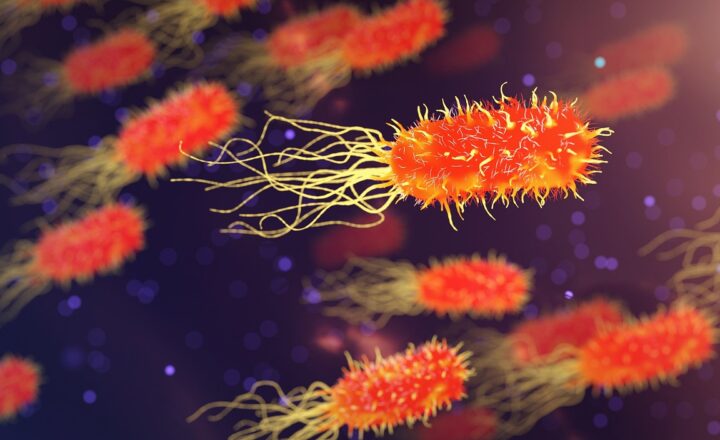Why Some People Gain Muscle Faster Than Others: The Role of Genetics
November 14, 2024

Muscle gain is often a hot topic among fitness enthusiasts and athletes. Have you ever noticed how some individuals seem to build muscle effortlessly, while others struggle despite putting in the same amount of work? This phenomenon can be attributed to various factors, but one of the most significant influences is genetics. Understanding the genetic factors affecting muscle growth can help us appreciate why individuals gain muscle at different rates, and it may provide insights to tailor our training regimens more effectively.
1. The Basics of Muscle Growth
To appreciate the role of genetics in muscle gain, we first need to understand how muscles grow. Muscle growth occurs through a process called hypertrophy, which involves the right combination of mechanical tension, muscle damage, and metabolic stress. Each of these elements contributes to activating the signaling pathways that lead to muscle repair and growth.
– Mechanical Tension: This occurs when muscles are subjected to heavy loads, leading to muscle fiber recruitment and adaptation.
– Muscle Damage: Intense training can cause microscopic tears in muscle fibers. This damage is a stimulus for repair and growth.
– Metabolic Stress: The accumulation of metabolic byproducts during high-intensity exercise is believed to foster muscle growth by encouraging hormonal responses that promote hypertrophy.
These processes are influenced not just by your training regimen, but also by your genetic material.
2. The Genetic Foundations of Muscle Growth
Genetics play a crucial role in how our bodies respond to exercise and how effectively we can build muscle. Here are some ways genetics influence muscle growth:
– Muscle Fiber Composition: People generally have different distributions of muscle fiber types: Type I (slow-twitch) and Type II (fast-twitch) fibers. Type II fibers are more responsible for explosive movements and muscle hypertrophy, while Type I fibers are more suited for endurance. Depending on your genetic makeup, you might have a higher proportion of one fiber type, affecting your muscle-building potential.
– Hormonal Profile: Hormones such as testosterone and growth hormone are critical for muscle growth. Genetic variations can lead to different baseline levels or responses to resistance training, impacting how quickly one can gain muscle.
– Recovery Ability: Genetics influence how quickly your body can recover from workouts. This recovery ability can affect how often you can train and the intensity of your training sessions, which in turn impacts muscle growth.
– Metabolism and Nutrient Partitioning: Some people have a genetic predisposition for faster metabolism and better nutrient partitioning, meaning their bodies may store less fat and utilize nutrients more effectively for muscle growth.
3. Genetic Studies and Insights
Several studies have sought to examine the genetic underpinnings of muscle growth. For example, a research article published in the Journal of Applied Physiology highlighted that individuals with certain genetic markers associated with increased muscle growth responded better to resistance training than those without those markers. Additionally, twin studies have shown that 30-80% of the variance in muscle strength and hypertrophy can be attributed to genetic factors.
One particular gene of interest is the ACTN3 gene, often called the “speed gene.” Variants of this gene can predict not only athletic performance but also how effectively individuals can gain muscle mass in response to training. Those with the RR genotype tend to respond better to resistance training, while those with the XX genotype may exhibit lower performance levels in power-based sports.
4. Other Factors Interacting with Genetics
While genetics plays an essential role in muscle gain, it’s crucial to remember that other lifestyle factors deeply influence the process as well. Here are a few:
– Training Program: A well-structured training program that incorporates progressive overload is key for muscle growth. Regardless of genetic predisposition, an effective program can help maximize your gains.
– Nutrition: Adequate protein intake, overall calorie consumption, and timing of meals significantly impact muscle recovery and growth. A proper diet tailored to your specific needs can help mitigate any genetic limitations.
– Consistency and Dedication: Regular training and a consistent approach are paramount. Those who stay committed to their training schedule are more likely to see results over time, regardless of genetic advantages or disadvantages.
– Sleep and Recovery: Adequate sleep is crucial as it facilitates recovery and hormonal regulation. Genetics can influence sleep patterns and recovery abilities, but implementing good sleep hygiene can benefit everyone.
5. Embracing Individual Differences
If you find yourself struggling to gain muscle compared to your training partners, it’s easy to feel discouraged. However, it’s essential to embrace individual differences and understand that each person’s journey is unique. Rather than comparing yourself to others, focus on your progress and find strategies tailored to your genetic makeup.
Considerations for your training and nutrition can ultimately lead to better results, despite genetic variations. Here are some tips:
– Know Your Body: Experiment with different types of training and diets to see what works best for your genetics. Your body is a lab; treat it as such with patience and exploration.
– Set Realistic Goals: Understand that muscle gain may take longer for some individuals based on their genetic predispositions, which is completely normal.
– Stay Motivated: Find a community or workout partner to keep you motivated throughout your fitness journey. Encouragement and support can make a significant difference.
Conclusion
In summary, muscle gain is a complex interplay of genetics and numerous other factors, including training, nutrition, and recovery. Understanding the role of genetics can illuminate why some people gain muscle faster than others, but it’s essential to take a comprehensive approach to fitness. By embracing both your genetic strengths and limitations, you can create a tailored training and nutrition plan that works for you.
So don’t be disheartened by the differences between yourself and others—instead, focus on optimizing your potential, setting realistic goals, and celebrating the unique development of your body with every gain you achieve.








